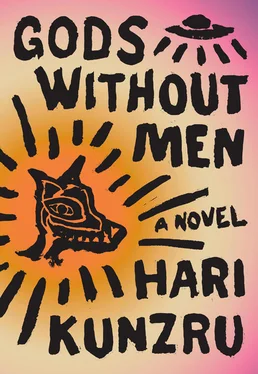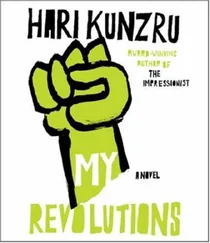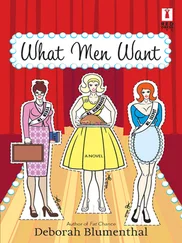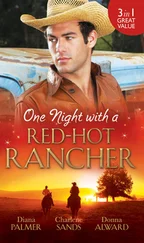“Well, I’ll be damned,” he said at length. “There he is.”
They passed the binoculars from hand to hand. There wasn’t a hint of moisture in the air. Visibility was perfect. Deighton took a while to pick it out, a little wisp of dust in the emptiness, a flicker of blue casting a long shadow. It seemed impossible. How far away was it? Ten, maybe fifteen miles? A running man wearing a blue shirt. On his shoulders a bundle of some kind. A child? It was impossible to say.
The mining track ran out and they made their way down a talus slope, picking a path as carefully as they could, the horses placing their feet with the care of tightrope walkers. This was where Deighton’s mount threw him. For two days the nameless bay had been docile; its show of temper in the corral seemed to vanish once they were out in the desert. Deighton was daydreaming, trusting the animal to find the best route down in the gathering darkness, when suddenly it reared up, sending him backward out of his saddle. Instinctively he broke his fall with his hand, twisting his arm beneath him as he landed. The horse kicked out, narrowly missing his head, then skidded some way down the slope, almost falling as the loose gravel slipped under its hooves. There were yells from farther down, as the lead riders saw rocks bouncing down toward them. The panic spread to animals on either side. A burro, laden down with firewood and provisions, slipped its halter and bolted.
Deighton got to his feet, flexing his wrist, expecting to find it broken. It seemed only to be sprained. A few cuts and bruises and a torn pair of pants was the worst of the damage. He was fixed up by one of Craw’s hands, a grizzled oldster named Silas Henry, who grinned at the world through a set of shiny teeth he claimed he’d crafted himself from gold he’d mined at Skidoo, before the panic wiped him out.
They camped at the foot of the slope. It was a sorry, exposed spot. As the heat fled from the land, a bitter wind started to whip across the plain, picking up sparks from the fire which raced through the air like little comets. The burro’s load of mesquite branches burned quickly, and after a hurried meal everyone made ready for bed, jostling for position near the embers of the fire.
In the violet haze of the early morning, as Deighton drank his coffee and ate his scoop of beans, Waghorn passed by and aimed a kick at his boots.
“I didn’t get no sleep because of you. Goddamn coughing.”
Deighton was too tired and sore to talk back. He thought he was running a fever. The handkerchief stuffed into his inside pocket was soaked with blood.
As dawn broke they put on speed, riding fast over the plain until they were slowed down by the lava field, with its fantastical twists and bubblings. They kept stopping to look through field glasses, but there was no sign of the running Indian. “There’s nowhere for him to go,” pronounced Calhoun, as if by saying it he could make it true. They were low on water, and the horses were tiring. No one was looking forward to another climb. Deighton was glad of each break, pain and fatigue overcoming his fear of what lay at the end of the chase, the resolution to the thing he’d set in motion.
The sun was over the mountains when they saw a mirror flashing many miles to the south. They turned the noses of the horses toward the signal. As they rode Deighton could feel his head dropping forward, lights twinkling in his mind. He wasn’t sure if the country he was seeing was real anymore. It seemed tentative, mutable. First he found himself on a salt pan, bright white and perfectly flat. Then in high country, where huge boulders rose up between the draws, their shapes like children’s clay models. An elephant. A gas mask. A skull. They passed through a garden of cholla cacti. A hawk flew overhead. When, at last, they stopped, some of the men dug out a creek bed, looking for water. A few feet down, they struck it, a brown brackish trickle, then a steady flow. The horses drank.
He could taste death in that water. That was when he knew they were close.
Soon there were other men. Handshakes and low voices. The second posse had a city fellow with them, a Hearst journalist out of San Francisco, with a camera and a tripod strapped behind his saddle. It’s a big story, he told them. You got yourselves a crazed Indian. Nothing the readers back east like better than a little taste of the wild frontier.
Deighton had no recollection of lying down or going to sleep. The stars overhead formed an inverted bowl, a crystal dome, over his head. Almost at once he was shaken awake. It was still dark. Around him, men were loading guns, saddling horses, making ready.
“We seen his fire. He can’t be more than five miles away.”
They rode across the dry lake through a gray half-light, neither day nor night, but something in between. He felt delirious, ethereal, as if he were no longer completely inside his body. In the distance he saw the three spires of rock and knew that he had come to the threshold, the opening between this world and the Land of the Dead. Up on the rocks was a glow. It didn’t look like firelight, but something else, something spectral and strange.
Oh Lord, he prayed. If you exist, make something happen. I have brought this about, out of jealousy. Lord, save me from the guilt of what is about to happen here.
They sat and they waited. The sun rose high in the sky, but the chill stayed in the air. Deighton watched the sky, and thought he saw things written in it. Secret trails. Wisdom. He wondered who was up on the rocks with Willie Prince. Not a child. How could he have taken a child up there? But Eliza? Please Lord, he prayed again. Let her not be with him.
The gunfire sounded like boys throwing firecrackers.
The posse had gotten tired of waiting. They moved forward in a crouching run. The figure up on the rocks fired shot after shot. As Deighton watched, Danville Craw went down, clutching his leg. After that they crawled, taking cover as they climbed. It was an unruly, ill-disciplined advance. None of them would survive a minute in the face of those German guns. Do you need me to cut the wire? he asked. No one answered. Unless someone cut a route, they were going to get tangled up in the wire. Up in the sky a pale eye looked down on him. God’s German eye.
That was not where he was. Why had he thought so? That was not where he was at all.
Waghorn was screaming, a continual high-pitched wail.
Deighton stood up. He opened his arms wide to show he was unarmed. He shouted out a greeting.
“Garcés! Fray Garcés! En nombre de Dios!” He repeated it as he walked forward. “Get down, you fool!” yelled Calhoun. Ignoring him, Deighton climbed the path, stepping over Craw, who was lying in the dust, pressing his palms into the bloody wound in his thigh. A bullet ricocheted off the rock at his feet. Then someone tackled him from behind. He sprawled. The ground was ice-cold.
He lay for a long time, straining to catch his breath. He felt as if he were drowning, his lungs filling with sludge, each inhalation coming in a little whistling rasp. He did not know where he was, why he was there. After a while he realized the firing had ceased. From up on the rocks came a ragged cheer.
As slowly as an old man, he stood and trudged his way upward, stopping every few moments to rest. The others had all gone on. Up ahead, at the base of the tallest spire, he saw a sudden flash of magnesium light. Men were clustered around a corpse, laid out on the ground.
“I shot him!” exulted Waghorn. “I got him! A clean kill!” Silas Henry capered about, grinning his big gold grin.
The Hearst man was taking trophy pictures. Waghorn and Calhoun with their rifles crossed, boots on the corpse’s chest; Craw supporting himself on someone’s shoulder, keeping the weight off his bandaged leg. Deighton looked down at the body, its clawed hands, bare feet. It was impossible to tell who it was. The face was blown clean off.
Читать дальше












